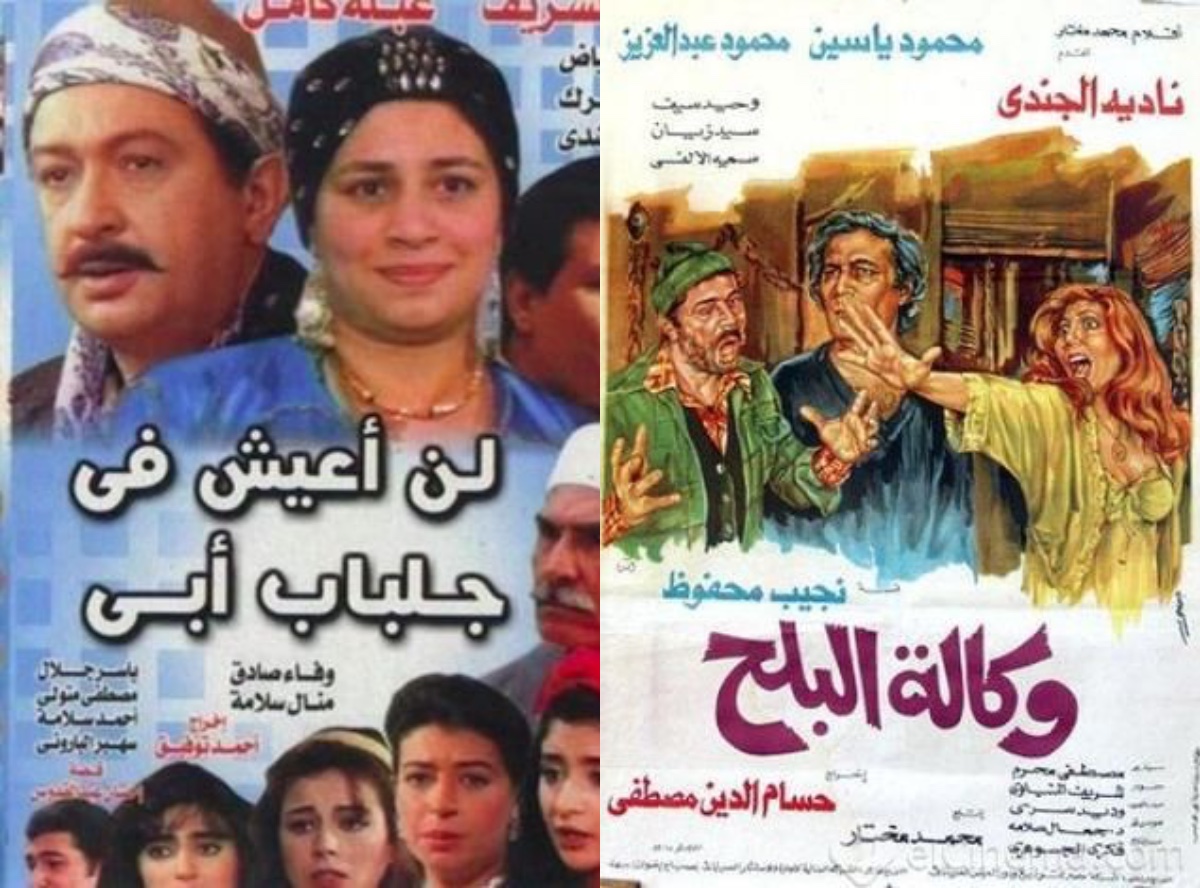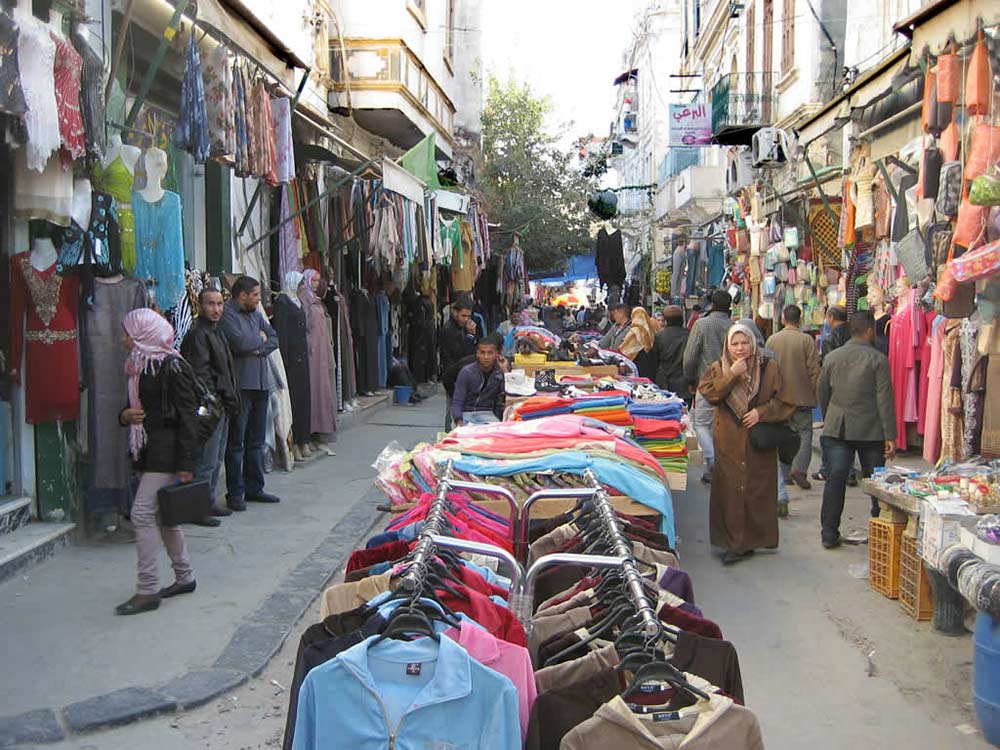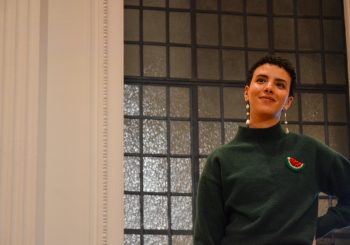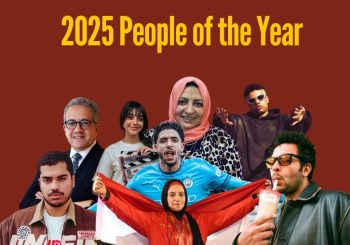“Wekalet el Balah” (the market of dates), more commonly known as El Wekala is a landmark of Egyptian fashion history. Located in Bulaq, El Wekala has been a go-to for affordable clothing for decades. More recently, with thrifting becoming more popular, environmentalists started heading to El Wekala to conquer their biggest demon, fast fashion.
Walking into El Wekala anytime in the week can be an overwhelming experience, with rows and rows of products, and multiple sellers scattered throughout the street. Not only that, when walking in El Wekala, odds are, one would be walking in a single line because it is heavily crowded.
Although it is not the safest place during the pandemic, it is undeniable how curious people maneuver and interact with the space. On the streets, one can see multiple, usually young, people venturing through the crowded streets, armed with layers of facemasks and sanitizers, women clutching their purses, teens traveling in groups, and sellers negotiating prices with their clients: this is ‘El Wekala’.
However, this isn’t how it always looked like, once upon a time ‘Wekalet El Balah’ was a market for dates and spare parts.
A modest history
El Wekala was created in 1880, making it one of Cairo’s oldest functioning markets. It was established via a collaboration of 15 merchants, from Lebanon, Syria, and Palestine. As time went by, the number of merchants grew exponentially, making it the most popular market in Cairo, at the time.
In the 1930s, the merchants went through an economic crisis that led them to sell their shops to the Jews of Egypt, which transformed it into the ‘El Kanto’ used clothing market. They had control over the shops until the 1950s, and then, the shops were sold to a family from Upper Egypt, which transformed El Wekala into the market that it is today.
El Wekala is ingrained into the Egyptian rhetoric to the extent that it appeared in many films, including the film “Wekalet el Balah” (1982) featuring iconic actor Mahmoud Yassin, and the TV series “Lan a’ish f gelbab abi” (I won’t live in my father’s clothing (1996) featuring esteemed actor Nour El Sherif.

Today, Wekalet el Balah is a ground where many opt for deals on used clothing, fabrics, or European clothing store stocks. This democratized access to good quality clothing; nowadays it is an environmentalist’s haven. Every clothing item that well-off Egyptians gave away, for charity or discard, can be found there.
A sustainable shopping hotspot
Under the guise of sustainability and a deep-rooted hatred for fast fashion, El Wekala became a hotspot. Now, teens from all over the city roam El Wekala, looking for the most ‘vintage’ leather jacket, or the biggest dad shirt that will fit them.
With the sustainable fashion industry’s own caveats, it is understandable to venture into El Wekala seeking an alternative. Yet, one concern with its increasing popularity is that the same clothes found in the market are being sold in little Zamalek Boutiques for three times their original price.
Another new trend, brought forward by the rise of online sales, is people picking out the best pieces and selling them at their own prices on Instagram’s thrift pages. Many account owners end up finding hidden gems, such as old leather jackets seemingly in perfect condition, fashion-forward corduroy pants, that are on par with the latest fashion trends.
With the popularization of thrift shopping amongst the more well-off classes, the ‘shame’ of buying used clothes is no longer present, it is now fashionable for an individual to wear their father’s beach shirt from the seventies, or thrift for hidden treasures.
Not only is it considered fashionable, but it has also become a new normal for the new generation to source their clothing away from popular and global brands like Zara, H&M, and Bershka, and buy much more for a lower price.
This cements the ‘edge’ of thrift shopping which has attracted the younger generation, along with ‘vintage’ coming back into fashion, in early 2020.
That’s what El Wekala is entirely about, historical significance, it is not just another market in Cairo, it is a piece of its rich history.







Comments (9)
[…] الوكالة: سوق التوفير التاريخي في القاهرة […]
[…] الوكالة: سوق التوفير التاريخي في القاهرة […]